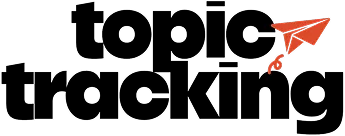The way people work has changed dramatically in recent years, with remote and hybrid work models becoming the norm rather than the exception. Advances in technology, shifting workplace expectations, and a greater emphasis on work-life balance have fueled this transformation. While remote work offers flexibility and freedom, it also comes with challenges. Whether you’re a digital nomad exploring the world or a hybrid worker splitting time between home and the office, knowing how to stay productive, connected, and balanced is key to long-term success.
Choosing the Right Remote Work Setup
A successful remote work experience starts with the right environment. Whether working from home, a coworking space, or a beachside café, having a setup that supports productivity is essential.
Home Office Essentials
For hybrid workers and remote professionals who spend most of their time at home, a well-organized workspace is crucial. Key components include:
- Ergonomic Furniture – A comfortable chair and desk reduce strain and improve focus.
- High-Speed Internet – Reliable connectivity is non-negotiable for video calls and cloud-based work.
- Noise-Canceling Headphones – Minimize distractions in shared spaces or busy households.
- Proper Lighting – Natural light improves mood and reduces eye strain.
- Backup Power & Internet Solutions – A portable Wi-Fi hotspot or uninterruptible power supply (UPS) prevents work disruptions.
Mobile Work Setups for Digital Nomads
For those working from different locations, portability and flexibility matter. Consider:
- Lightweight Laptop & Accessories – A powerful but portable device is a must-have.
- Travel-Friendly Wi-Fi Solutions – International SIM cards, pocket Wi-Fi, or co-working spaces with stable connections.
- Cloud-Based Storage – Platforms like Google Drive, Dropbox, and OneDrive ensure easy file access.
- Co-Working Memberships – Spaces like WeWork, Regus, and local hubs provide a productive environment.
Choosing the right tools and workspace ensures efficiency, no matter where you are.
Staying Productive and Focused While Working Remotely
Remote work offers freedom, but without proper discipline, productivity can suffer. Staying focused requires structure, clear boundaries, and the right habits.
Time Management Strategies
Without the structure of an office, it’s easy to lose track of time. Strategies to boost productivity include:
- The Pomodoro Technique – Work in focused 25-minute sprints with short breaks.
- Time Blocking – Schedule specific hours for deep work, meetings, and personal time.
- Task Prioritization – Use methods like the Eisenhower Matrix to focus on urgent and important tasks first.
- Avoiding Multitasking – Single-tasking improves efficiency and reduces mistakes.
Setting Boundaries Between Work and Personal Life
One of the biggest challenges of remote work is separating work from personal time. To prevent burnout:
- Set Clear Work Hours – Stick to a schedule and communicate availability to colleagues.
- Create a Dedicated Workspace – Physically separating work from leisure areas helps with mental separation.
- Use “Do Not Disturb” Mode – Silence notifications during deep work periods.
- Take Regular Breaks – Short walks, stretching, or quick meditation boosts energy and creativity.
Maintaining a structured approach ensures work remains productive while leaving space for relaxation.
Mastering Virtual Communication and Collaboration
Remote work relies heavily on digital communication, making effective collaboration skills essential. Without in-person interactions, clear and concise communication becomes even more important.
Choosing the Right Tools
Different communication tools serve different purposes. Popular options include:
- Slack & Microsoft Teams – Ideal for instant messaging and team collaboration.
- Zoom & Google Meet – Essential for virtual meetings and presentations.
- Asana, Trello & ClickUp – Project management tools that keep teams organized.
- Notion & Evernote – Useful for taking notes and sharing information.
Using the right mix of tools ensures efficient and smooth workflows.
Best Practices for Remote Communication
To avoid misunderstandings and maintain strong professional relationships, follow these principles:
- Over-Communicate When Necessary – Clarity is key when working remotely. Summarize meetings, document decisions, and confirm expectations.
- Respect Different Time Zones – When working across regions, schedule meetings at mutually convenient times.
- Use Video Calls for Important Discussions – Non-verbal cues are lost in emails and chat, so video calls help maintain strong team connections.
- Maintain a Professional Online Presence – Whether on Slack or Zoom, professionalism matters in digital interactions.
Building strong communication habits helps remote workers stay connected and aligned with their teams.
Balancing Work and Travel as a Digital Nomad
For digital nomads, working while traveling presents unique challenges. Time zones, inconsistent Wi-Fi, and changing environments require careful planning.
Planning Work-Friendly Destinations
Some destinations cater better to remote workers than others. Top digital nomad hotspots include:
- Bali, Indonesia – Affordable living, strong expat community, and co-working spaces.
- Lisbon, Portugal – Vibrant city life with fast internet and a growing remote work scene.
- Chiang Mai, Thailand – Low cost of living, great food, and digital nomad-friendly infrastructure.
- Mexico City, Mexico – Rich culture, modern co-working spaces, and a strong remote work network.
Choosing locations with reliable internet, networking opportunities, and comfortable living conditions makes remote work more sustainable.
Managing Work-Life Balance While Traveling
Balancing exploration and productivity requires discipline. Strategies include:
- Setting Core Work Hours – Structure the day with set work times before sightseeing.
- Using Productivity Apps – Tools like Todoist and Focus Booster help stay on track.
- Networking with Other Digital Nomads – Platforms like Nomad List and Meetup help build connections abroad.
A structured approach ensures travel remains enjoyable without compromising work responsibilities.
Thriving in the Remote Work Era
The remote work revolution offers unprecedented flexibility and freedom, but success requires discipline, adaptability, and the right tools. Whether working from home, a café in Paris, or a co-working space in Tokyo, establishing strong habits, clear boundaries, and effective communication practices can make all the difference. By embracing digital collaboration, optimizing workspaces, and prioritizing well-being, professionals can create a fulfilling and sustainable remote work lifestyle.

